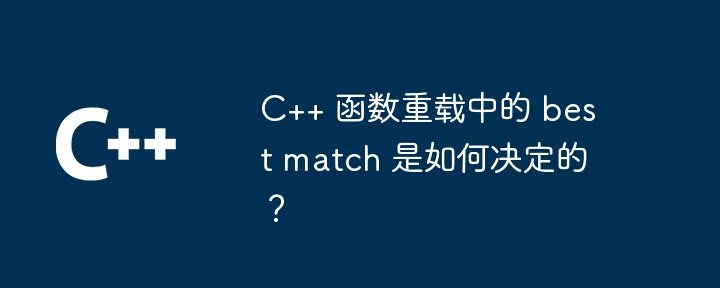Home >Backend Development >C++ >How is the best match determined in C++ function overloading?
How is the best match determined in C++ function overloading?
- 王林Original
- 2024-04-26 14:45:02926browse
The order in which the best match is determined is: precision match standard conversion user-defined conversion default number of arguments minimum

The best match in C function overloading is How was it decided?
In C, function overloading allows you to create multiple versions of a function with the same name but different parameters. The compiler follows a set of rules to determine the best match when using the appropriate overloaded version.
Rules:
- Precision matching: This rule applies when the actual participant number exactly matches the type of the formal participant number.
- Standard conversion: This rule applies if an actual participant number can be implicitly converted to a formal participant number.
- User-defined conversion: This rule applies if there is a user-defined conversion operator and the actual participants can be converted to formal participants.
- Default parameters: Overloaded versions with default parameters have lower priority than versions without default parameters.
The order in which the best match is determined:
- First, the compiler attempts an accuracy match.
- If there is no precision match, the compiler will try to use standard conversion.
- If there is no standard conversion, the compiler will try to use a user-defined conversion.
- If no transformation applies, the compiler chooses the version with the fewest default parameters.
Practical case:
Consider the following code:
void foo(int x); void foo(float x);
When calling foo(3.14), compile The compiler will use void foo(float x) as the best match because floating point constants 3.14 can be implicitly converted to the float type.
Additional Notes:
- The compiler will report an error if there are multiple overloaded versions with the same best match.
- The compiler will also report an error if it cannot determine the best match.
- To avoid ambiguity, it is best to ensure that the signatures of function overloads are distinct.
The above is the detailed content of How is the best match determined in C++ function overloading?. For more information, please follow other related articles on the PHP Chinese website!

